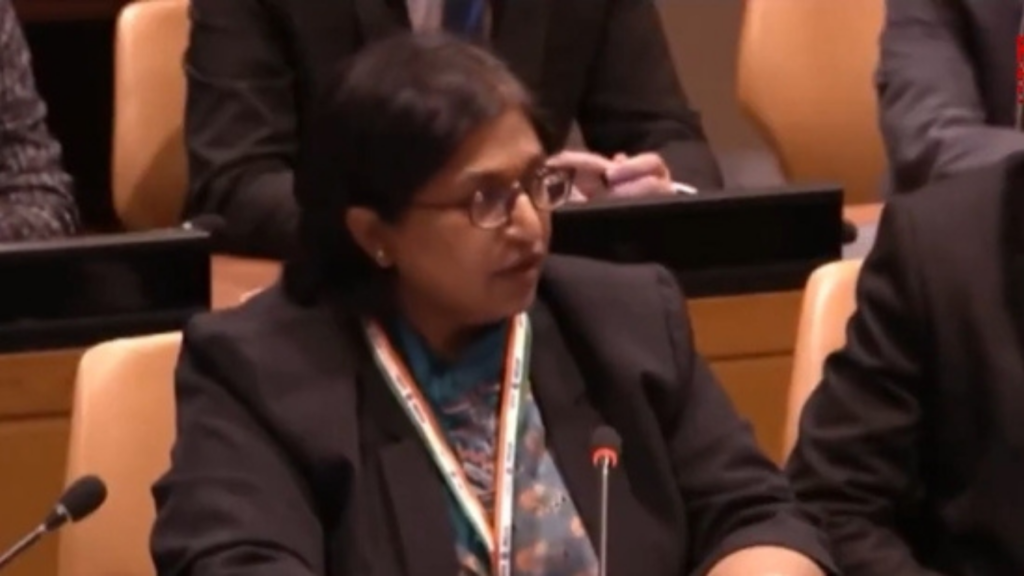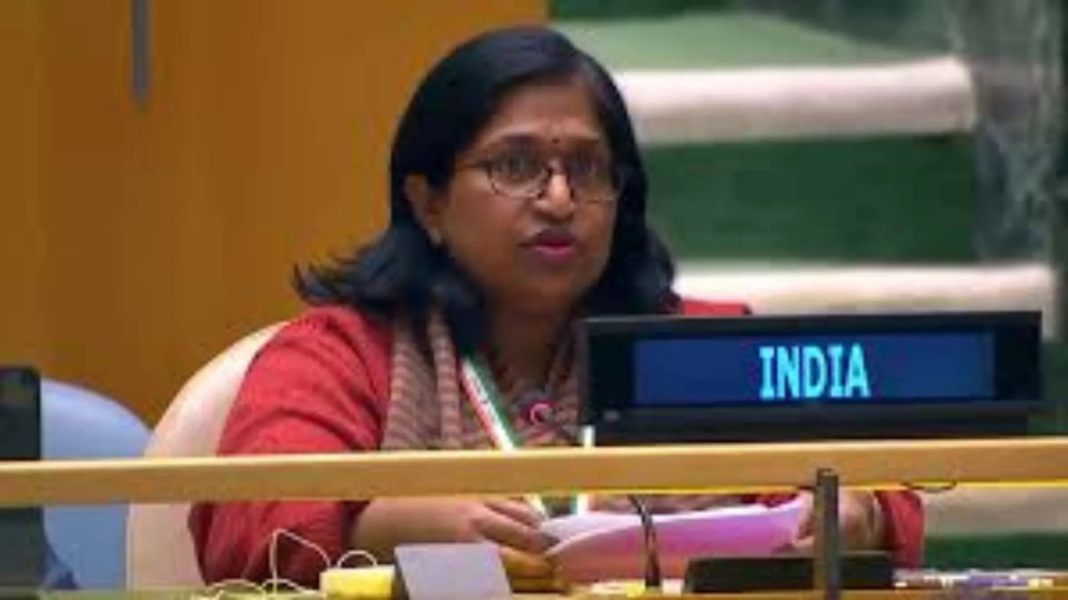
29th April 2025 at New Delhi/Geneva
In a strong and direct statement at the United Nations Human Rights Council (UNHRC) session in Geneva, India exposed Pakistan’s support for terrorism and called it a “rogue state”. This strong reaction came after Pakistan’s Defence Minister, Khawaja Asif, openly admitted that Pakistan trained and supported terrorist groups in the past. India’s representative at the UN said that the Defence Minister’s confession surprised no one, as the world already knows Pakistan’s role in promoting terrorism.
This event has once again brought international attention to India-Pakistan relations, terrorism issues, and the need for global action against states that sponsor terror.
Pakistan’s Defence Minister Admits Training Terrorists
During a public event in Pakistan, Defence Minister Khawaja Asif admitted that Pakistan had trained and supported terrorist organizations. He explained that during earlier decades, Pakistan used terrorism as a tool for achieving political and military goals. The minister also confessed that these groups later turned against Pakistan itself, causing violence and instability within the country.
This rare and shocking confession confirmed what many countries, including India, have been saying for decades — that Pakistan openly supported terrorism and used it as a part of its foreign policy. For years, India has accused Pakistan of sheltering terrorists who planned attacks on Indian soil. Now, a top Pakistani official has publicly acknowledged the truth.
India’s Powerful Response at the United Nations
Reacting strongly to this confession, India’s representative at the UNHRC, Pawan Badhe, criticized Pakistan for openly supporting terrorism. He said:
“Pakistan is a rogue state that continues to sponsor terrorism. The recent confession of Pakistan’s Defence Minister about training terrorists only confirms what the world has long known.”
He added that the confession was not surprising at all, as Pakistan’s links to terrorism have been well-documented for decades. India made it clear that a country with such a record cannot speak about human rights when it oppresses its own people and protects terrorists.
India’s reply was not just a defense but a strong attack highlighting Pakistan’s double standards and hypocrisy on international platforms.
India Lists Pakistan’s Long History of Supporting Terrorism
India did not stop at just condemning the confession. In its speech, India listed several terror attacks that were planned and executed with help from Pakistan-based terror groups. Some of these attacks include:
- 1993 Mumbai bomb blasts, where over 250 innocent people lost their lives.
- 2001 Indian Parliament attack, which almost led to a full-scale war between India and Pakistan.
- 2008 Mumbai terror attacks (26/11), which killed 166 people and shook the entire world.
- Pathankot airbase attack and Uri army camp attack, which killed many soldiers.
- Pulwama terror attack in 2019, where a suicide bomber killed 40 CRPF jawans.
India pointed out that in each of these cases, Pakistani terror groups like Lashkar-e-Taiba and Jaish-e-Mohammed were involved. Despite clear evidence, Pakistan refused to take action and continued to protect the masterminds behind these attacks.
Why Did India Call Pakistan a “Rogue State”?
The term “rogue state” is very serious in international relations. It is used for countries that:
- Sponsor and protect terrorism,
- Disregard international laws and norms,
- Cause instability in their region, and
- Suppress their own citizens’ rights.
India said that Pakistan matches all these points. It argued that Pakistan’s policies have not only harmed its neighbours but also its own people. Instead of fighting terrorism, Pakistan allowed terrorist groups to grow strong, leading to instability inside Pakistan itself.
India stressed that terrorism and human rights cannot go hand-in-hand. A country that trains terrorists cannot claim to be a defender of human rights at international forums.
Pakistan’s Poor Human Rights Record Highlighted
India also used the opportunity to highlight Pakistan’s poor human rights record. It said that Pakistan constantly talks about human rights in other countries but ignores violations at home. Some of the points India raised include:
- Religious minorities like Hindus, Sikhs, and Christians are persecuted. Forced conversions and attacks on places of worship are common.
- Women and girls from minority communities are often kidnapped and forced to marry.
- Journalists and media persons are regularly harassed, arrested, or even killed for reporting the truth.
- Political activists from regions like Balochistan, Sindh, and Gilgit-Baltistan are abducted or silenced.
- People in Pakistan-occupied Kashmir (PoK) are denied basic rights like free speech, education, and health services.
India told the UN that instead of lecturing others, Pakistan should first address the injustice and oppression happening within its own borders.
Global Reaction to Pakistan’s Confession
The Defence Minister’s open admission has caused a stir around the world. Many experts believe that now, the international community has no excuse to ignore Pakistan’s role in spreading terrorism. Analysts suggest that the United Nations and global powers like the United States, the European Union, and others should take stronger action against Pakistan.
Some experts are calling for:
- Stricter sanctions against Pakistani leaders involved in supporting terrorism.
- Greater monitoring of Pakistan’s activities by international bodies like the Financial Action Task Force (FATF).
- Increased pressure on Pakistan to dismantle terror networks operating from its soil.
Many countries are watching closely to see if Pakistan will finally take real action or continue with its policy of denial and double-speak.
India Also Speaks About Jammu and Kashmir
During its speech, India also addressed the issue of Jammu and Kashmir, which Pakistan often raises at the UN. India made it clear that Jammu and Kashmir is an internal matter and that Pakistan has no right to interfere.
India said that the people of Jammu and Kashmir are now experiencing peace, democracy, and development. In contrast, people living in Pakistan-occupied Kashmir are denied even basic human rights.
India accused Pakistan of using the Kashmir issue as a way to divert attention from its own problems like economic collapse, political chaos, and rising domestic terrorism.
India’s Rising Influence on the Global Stage
India’s strong and clear statement at the UN reflects its rising influence in global affairs. Over the past few years, India has:
- Built stronger ties with major powers like the USA, France, Japan, and Australia.
- Become an important voice in global forums like the G20 and the UN.
- Promoted the fight against terrorism at international platforms.
Meanwhile, Pakistan’s international image has suffered badly due to:
- Economic problems like inflation and rising debt,
- Political instability with frequent changes in leadership,
- Increased terrorism within its own borders, and
- Continued support for terror groups banned by the UN.
This contrast between India and Pakistan is becoming clearer to the world.
India’s message at the UN was loud, clear, and powerful. It called for an end to the world’s tolerance towards countries that use terrorism as a tool. India made it clear that confessions like that of Pakistan’s Defence Minister must not be ignored. Instead, they should lead to real action by the international community.
India asked the UN and the world’s major powers to hold Pakistan accountable for its past and ongoing support for terrorism. It emphasized that the global fight against terrorism cannot succeed unless countries like Pakistan are stopped from nurturing terrorist groups.
As the world listens, it remains to be seen whether Pakistan will change its ways. But one thing is sure — India will continue to raise its voice against terrorism and those who support it, at every international platform.































